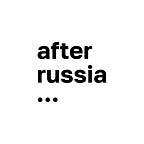“Discrediting” the armed forces
How the Russian regime stifles the anti-war movement
Context
Since the first mass public protests against the Russian invasion of Ukraine, the state authorities have fought any forms of anti-war activity. Besides detaining street protesters, Putin’s regime bans any criticism of the armed forces, including making calls against the use of Russian military troops.
How does it work
Nearly any anti-war statement, delivered in public speech or even in private communication, can be qualified as “discrediting” the armed forces and punished with huge fines or prison sentences for up to 5 years.
The law, which introduces penalties for “discrediting” the Russian army, was adopted on 4 March 2022. By the end of September, the Russian authorities had opened more than 4,000 administrative cases, and nearly everyone involved had been found guilty.
The most common reasons for suspicion of discrediting the Russian Armed Forces are posts and comments on social media, but not only them.
What else “discredits” the armed force, according to Russian authorities:
- displaying the words “no to war” or “for peace” in public;
- wearing blue-and-yellow clothes matching the colours of the Ukrainian flag;
- playing a popular Ukrainian song at a wedding party;
- distributing free copies of George Orwell’s 1984 to passersby;
- standing next to a World War II memorial with a copy of Leo Tolstoy’s War and Peace in hand;
- expressing “silent support” for anti-war protesters.
